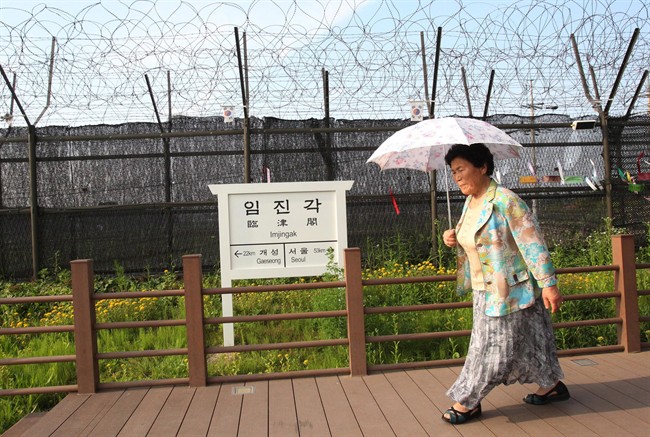SEOUL, Korea, Republic Of – Border guards of the rival Koreas exchanged gunfire Sunday along their heavily fortified border in the second such shootout in less than 10 days, South Korean officials said.

The shootout occurred after South Korean soldiers broadcast warning and fired warning shots against about 10 North Korean soldiers who were approaching to the military demarcation line inside the Demilitarized Zone that bisects the Korean Peninsula, according to a statement from South Korea’s Joint Chiefs of Staff.
Two shots believed to have been fired by those North Korean soldiers were found at a South Korean guard post and South Korean soldiers fired toward the North, the statement said.
South Korean defence officials say the North Korean soldiers returned to the North after the incident and they have been no reports of casualties.
The two Koreas also traded gunfire along the border on Oct. 10, after South Korean activists floated balloons carrying anti-Pyongyang leaflets. There were no reports of casualties from that incident either.
North Korea has warned it would take unspecified stronger measures if leafleting continues, but South Korean activists said they won’t yield to the North’s threats and vowed to float more leaflets across the border.
The Korean Peninsula remains in a technical state of war because the 1950-53 Korean War ended with an armistice, not a peace treaty.

Comments